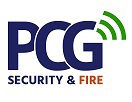Understanding Access Control Systems
Access control systems are essential components in modern security frameworks. They are designed to manage who is allowed to enter specific areas within a building or a site. Such systems range from simple physical locks to complex biometric systems, integrating technology and security protocols to ensure the safety of assets and personnel.
The fundamental purpose of access control systems is to prevent unauthorized access while allowing convenient entry for authorized individuals. This dual function is critical for protecting sensitive information, physical property, and the well-being of employees.
The Importance of Access Control Systems
Access control systems play a pivotal role in maintaining security within business environments. They not only safeguard physical spaces but also foster a culture of responsibility and trust among employees. By clearly defining who has access to what areas, businesses can mitigate risks associated with theft, vandalism, and espionage.
Furthermore, in today’s digital age, where information security is paramount, effective access control systems expand beyond physical barriers to include data access and cybersecurity measures. The integration of these systems into an organization’s overall security strategy can significantly enhance its resilience against both physical and digital threats.
Key Features of Access Control Systems
Modern access control systems come equipped with various features designed to maximize security and user convenience. Some of the most notable include:
- Credential Options: These may include key cards, biometric scans, passwords, and mobile access.
- Real-time Monitoring: Many systems offer live feedback and monitoring capabilities, allowing businesses to track access events as they occur.
- Audit Trails: The ability to generate reports on who accessed specific areas and when is valuable for security reviews.
- Remote Access: Administrators can manage and control access permissions remotely, providing flexibility to respond to security needs quickly.
In addition to these features, many access control systems now incorporate advanced technologies such as artificial intelligence and machine learning. These technologies enable predictive analytics, which can identify unusual access patterns and alert security personnel to potential threats before they escalate. For instance, if an employee attempts to access a restricted area outside of normal working hours, the system can trigger an alert, allowing for immediate investigation.
Moreover, the rise of mobile technology has transformed how access control systems operate. With the proliferation of smartphones, many systems now allow users to gain entry using mobile applications, which can enhance convenience and efficiency. This shift not only streamlines the access process but also reduces the need for physical credentials, minimizing the risk of lost or stolen access cards. As organizations continue to evolve, the integration of such innovative solutions will be crucial in maintaining robust security measures while accommodating the dynamic needs of the workforce.
Benefits of Westly Chapel Access Control Systems for Businesses
Implementing an access control system tailored for Westly Chapel businesses presents several advantages that go beyond mere security.
Enhanced Security Measures
One of the most immediate benefits of access control systems is the enhancement of security measures. By enforcing strict access protocols, businesses can significantly decrease the likelihood of unauthorized access and other security incidents. Various technologies, such as card access and biometric scanners, can provide layered security, ensuring only authorized personnel can enter sensitive areas.
Improved Employee Management
Access control systems also facilitate better employee management. By tracking entry and exit times, businesses gain insight into employee attendance and overtime hours. This data can streamline workforce management processes, allowing for informed decision-making regarding staffing and operational efficiency.
Moreover, access control systems can be set up to accommodate different employee roles, providing customized access levels while maintaining overall security. This flexibility fosters an environment where security measures align with operational needs.
Cost-Effective Security Solution
In the long run, an access control system proves to be a cost-effective solution for security. While upfront installation costs may seem high, the reduction in security breaches can save businesses substantial expenses associated with theft, recovery, and legal consequences. Moreover, the ability to monitor employee activities can prevent time theft and increase productivity.
Choosing the Right Access Control System for Your Business
Selecting the proper access control system is crucial for maximizing its benefits. Businesses must consider their unique needs and circumstances while making this choice.
Factors to Consider
When evaluating access control systems, several factors should be taken into consideration:
- Size of the Organization: Larger businesses may require more complex systems capable of supporting multiple entrance points and varied access levels.
- Budget: Costs can vary significantly based on features and technology. It’s vital to establish a budget that balances security needs with financial constraints.
- Future Scalability: Choose a system that can grow with your organization, allowing you to add features or expand coverage as your business evolves.
Customizing Your Access Control System
An ideal access control system should cater to the specific requirements of a business. Customization options can include different credentials, unique access levels, and tailored reporting features. Engaging with a professional security consultant can help identify the right mix of elements to create a system that best meets your organization’s needs.
Installation and Maintenance of Westly Chapel Access Control Systems
Proper installation and ongoing maintenance are critical to ensuring that access control systems operate effectively and efficiently.
Professional Installation Process
The installation of an access control system typically involves several steps, including site assessment, hardware installation, software setup, and system testing. Engaging a professional installer ensures that the system is set up correctly, minimizing potential vulnerabilities.
During the installation process, it’s also essential to discuss ongoing training for staff to fully utilize the system’s capabilities, ensuring a smooth transition and reducing the likelihood of user error.
Regular Maintenance and Updates
Regular maintenance is vital for keeping access control systems functioning optimally. This includes checking hardware components, updating software, and reviewing access logs to identify any unusual activities. Depending on the system, routine maintenance can be scheduled monthly or quarterly to ensure all components are in good working condition.
Additionally, as technology continues to evolve, updating system software will help protect against emerging threats, allowing businesses to stay ahead in a dynamic security landscape.
Future of Access Control Systems in Businesses
Access control systems are continually evolving, driven by technological advancements and shifting security needs.
Technological Advancements in Access Control Systems
Emerging technologies such as artificial intelligence, machine learning, and the Internet of Things (IoT) are shaping the future of access control systems. These innovations allow for enhanced monitoring, predictive security analysis, and more responsive systems capable of adapting to changing circumstances in real time.
Artificial intelligence can also streamline the approval process for access requests, ensuring that only qualified individuals are granted access, ultimately reducing the workload on administrative staff.
The Role of Access Control Systems in the Post-Pandemic World
The COVID-19 pandemic has reshaped the way businesses approach security and access control. In a post-pandemic world, systems that incorporate health protocols such as touchless entry and health screening measures are likely to become the norm. Businesses are increasingly recognizing the importance of adapting their security measures to accommodate new health standards while maintaining security.
In conclusion, Westly Chapel access control systems represent a vital investment for businesses aiming to enhance security, improve management practices, and adapt to future challenges. By understanding the systems available, their benefits, and considerations in selection, companies can make informed decisions that align with their strategic goals.
Ready to elevate your Westly Chapel business’s security to the next level? PCG Securities & Fire is at the forefront of providing cutting-edge access control systems that integrate seamlessly with your existing security measures. Our expertise extends from thorough consultations to meticulous installations and comprehensive training, ensuring your security infrastructure is robust and resilient. With a track record of handling projects of all scales, from extensive security camera networks to intricate access control points, we are the industry experts you can trust. Embrace the future of security with our advanced solutions, and gain the peace of mind that comes with knowing your business is protected by the best. Don’t wait to secure your assets and ensure the safety of your employees—Contact Us! today to discuss your access control needs and discover how PCG Securities & Fire can make a difference for your organization.

